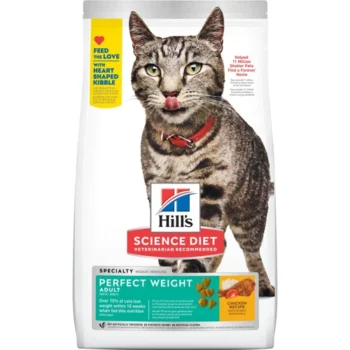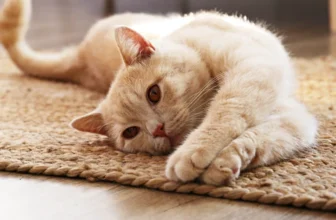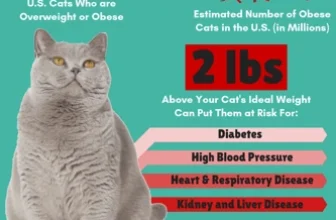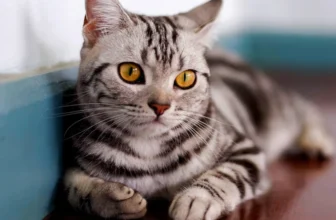As our feline friends grow older, their dietary needs can change and it’s important to adjust their diet accordingly. This is especially true for senior American Shorthair cats, who may have different nutritional requirements than younger cats. With so many diets available on the market, choosing the right one can be overwhelming. In this article, we’ll explore the best diets for senior American Shorthair cats and provide helpful tips for selecting the right one. From protein to raw food, we cover everything you need to know to help your furry friend live their best life.
Nutritional Needs of Senior American Shorthair Cats
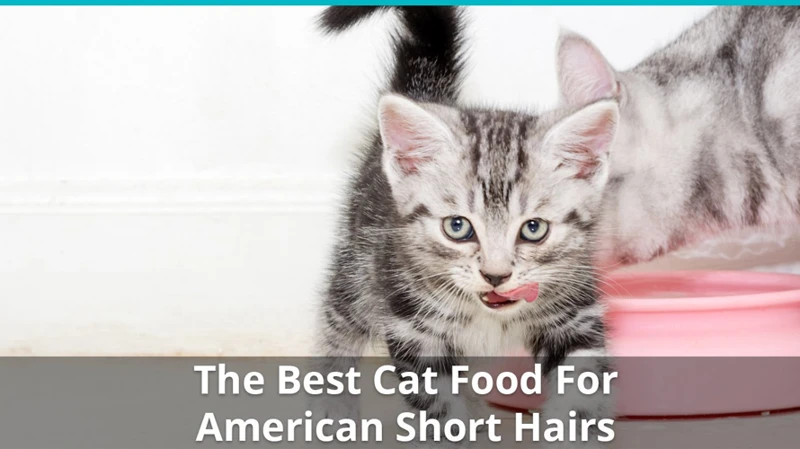
As our feline friends age, their nutritional needs start changing just like their activity level and health status. Senior American Shorthair cats, in particular, require a unique combination of nutrients to stay healthy and active in their golden years. To ensure a healthy and happy life for your furry friend, it’s essential to know what nutrients your cat needs for optimal health. In this section, we will explore the specific nutritional requirements that senior American Shorthair cats require to prevent any health issues and maintain a quality life.
Protein
As your senior American Shorthair cat ages, their nutritional needs change. One of the essential components of a cat’s diet is protein, which is crucial for muscle maintenance and repair. A high-protein diet is especially important for senior cats, as they are at risk of muscle atrophy. It’s vital to choose a diet that is rich in protein.
Sources of Protein for Senior American Shorthair Cats
1. Meat – Beef, chicken, turkey, and pork are all excellent sources of protein for cats. Ensure the meat is cooked thoroughly and free from bones.
2. Fish – Salmon, tuna, and other oily fish are also good sources of protein. However, it’s essential to avoid feeding your senior cat raw fish, as it may contain parasites.
3. Eggs – Eggs are a good source of protein and can be a great addition to your cat’s diet. Ensure they are fully cooked before giving them to your cat.
4. Plant-based protein – While a meat-based diet is ideal, you can also supplement your cat’s diet with plant-based protein. Good sources of plant-based protein for cats include lentils, chickpeas, and peas.
5. Specialized diets – If your senior cat has specialized dietary needs due to health issues, there are plenty of specialized diets on the market. For example, there are high-protein diets for cats with kidney problems.
The amount of protein your senior American Shorthair cat needs depends on their age, weight, and activity level. As a general rule, a senior cat needs at least 25-30% of their daily calories to come from protein.
It’s worth noting that not all protein sources are equal, and some contain higher-quality protein than others. It’s essential to choose a diet that provides a balance of high-quality protein sources.
Conclusion
Protein is an essential component of a senior American Shorthair cat’s diet and plays a crucial role in maintaining muscle health. By choosing a diet that is rich in high-quality protein sources and meets your cat’s nutritional needs, you can help prevent muscle atrophy and keep your cat in good health. To learn more about caring for your senior American Shorthair cat, check out our tips for senior American Shorthair cats.
Fat
As seniors get older, they tend to become less active, resulting in weight gain and an increased risk of obesity. However, having some fat in their diet is essential for overall health. The type and amount of fat your senior cat needs will depend on their individual health needs, but generally, cats require a diet consisting of around 5-10% fat.
Polyunsaturated fats, found in foods like fish oil and flaxseed, are essential for maintaining a healthy coat and skin, as well as regulating blood pressure and preventing blood clots. On the other hand, saturated fats, found in animal products like butter and lard, can increase the risk of heart disease, so it is important to limit this type of fat in your cat’s diet.
It’s important to note that senior American Shorthair cats who are less active may require lower fat levels in their diets, as excess fat can contribute to weight gain. In contrast, more active cats may require a slightly higher fat content to maintain their energy levels and overall health.
Here’s a table outlining some common examples of fat content across different types of food your senior American Shorthair cat may consume:
| Food Type | Amount of Fat (%) |
|---|---|
| Dry Cat Food | 10-20% |
| Wet Cat Food | 5-10% |
| Raw Chicken | 13% |
| Tuna (canned in water) | 1% |
To keep your senior cat at their optimal health, it is important to monitor their fat intake and adjust their diet if necessary. Working with your veterinarian can help you determine the right diet and fat content for your senior American Shorthair cat’s specific health needs, as well as prevent health issues related to age. Additionally, incorporating exercises like senior cat mobility exercises and providing a comfortable litter box like senior American Shorthair litter box can also contribute to maintaining your senior cat’s overall health and well-being.
Carbohydrates
Carbohydrates are a vital source of energy for senior American Shorthair cats. However, it is important to keep in mind that not all carbohydrates are the same. The best diets for senior American Shorthair cats should contain complex carbohydrates, such as brown rice and sweet potatoes, instead of simple carbohydrates like corn and wheat. Complex carbohydrates provide sustained energy and are less likely to lead to obesity or diabetes.
Here are some examples of complex carbohydrate sources that are suitable for senior American Shorthair cats:
- Brown rice
- Sweet potatoes
- Peas
- Lentils
- Chickpeas
It is important to note that while carbohydrates are an essential component of a cat’s diet, they should not make up the majority of their food intake. Your senior American Shorthair cat should be fed a balanced diet that includes protein, fat, vitamins, and minerals, in addition to carbohydrates.
When choosing a cat food, look for one that lists a complex carbohydrate as one of the main ingredients. Avoid foods that contain high levels of simple carbohydrates like corn and wheat, as they can cause blood sugar spikes and lead to weight gain.
Complex carbohydrates are an important part of a senior American Shorthair cat’s diet, but should be consumed in moderation. By choosing a high-quality cat food that includes complex carbohydrates, you can help ensure that your pet is receiving the nutrition they need to maintain a healthy weight and prevent disease.
Vitamins and Minerals
As American Shorthair cats age, their nutritional needs change, and it becomes crucial to choose a diet that meets their specific needs. Along with protein, fat and carbohydrates, senior cats require a balanced mix of vitamins and minerals to maintain optimal health.
Here are some essential vitamins and minerals that senior American Shorthair cats need to consume:
- Vitamin A: This vitamin is crucial for maintaining healthy vision, immune function, and skin health. It can be found in high-quality protein sources, such as liver, fish and eggs.
- Vitamin C: Vitamin C is important for boosting the immune system and protecting against oxidative damage. It can be found in fruits and vegetables, such as squash, spinach, and broccoli.
- Vitamin E: This vitamin supports healthy tissue growth and promotes skin health. It can be found in foods like sunflower seeds, almonds and cooked spinach.
- Vitamin K: This vitamin helps with blood clotting and is important for bone health. It can be found in green leafy vegetables like kale, spinach, and collards.
- Calcium: This mineral is essential for bone and teeth health. Foods like dairy, canned fish, and leafy greens are good sources of calcium.
- Phosphorus: This mineral supports healthy bones and teeth, and also plays a role in energy metabolism. Heart meat, chicken, and fish are high in phosphorus.
- Magnesium: This mineral is necessary for nerve and muscle function, and also helps with energy metabolism. Magnesium can be found in cashews, almonds, and spinach.
It is important to note that, while all of these vitamins and minerals are essential for the health of senior American Shorthair cats, they should be consumed in moderation and balance, as overconsumption can lead to health issues. Consulting a veterinarian and following their dietary recommendations can help ensure that your senior cat receives the appropriate amounts of these vital nutrients.
Types of Diets for Senior American Shorthair Cats
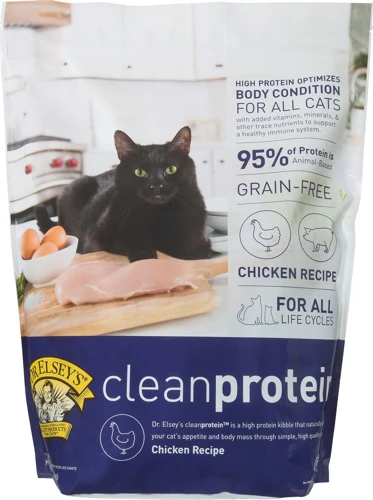
When it comes to feeding our furry friends, there are various types of diets to choose from. For senior American Shorthair cats, it’s essential to select a diet that meets their nutritional needs while also considering their preferences, health conditions, and activity levels. From dry food to raw food, each diet has its advantages and disadvantages. Let’s explore some of the different diets that are available for senior American Shorthair cats.
Dry Food
As the name suggests, dry food is cat food that comes in a dry and crunchy form. Dry food is the most commonly used type of food for cats, including senior American Shorthair cats. This type of food is convenient to store, easy to serve, and affordable.
Advantages of Dry Food
Dry food has many advantages that make it an excellent option for senior American Shorthair cats. Firstly, dry food helps keep the cat’s teeth clean by removing plaque and tartar. Secondly, it is rich in fiber, which aids in digestion and helps prevent constipation. Thirdly, dry food has a long shelf life and can be purchased in bulk, making it cost-effective for cat owners. Finally, dry food is easy to measure and control the portion sizes, helping to regulate your cat’s calorie intake.
Considerations When Choosing Dry Food
When selecting dry food for your senior American Shorthair, there are several factors to consider. Firstly, you should choose high-quality dry food that meets the nutritional needs of your cat. Look for a brand that has high levels of protein, healthy fats, and a good balance of vitamins and minerals. Secondly, you should opt for dry food with smaller kibble sizes as it makes it easier for your senior cat to chew and digest. Finally, ensure that your cat has access to plenty of clean drinking water as a diet of dry food can lead to dehydration.
To help you choose the best dry food for your senior American Shorthair cat, take a look at the table below:
| Brand Name | Nutrition Content | Kibble Size | Price Range |
|---|---|---|---|
| Hill’s Science Diet | Protein: 30%; Fat: 14%; Fiber: 3% | Small bite-size kibble | $20-$50 |
| Purina ONE | Protein: 38%; Fat: 8%; Fiber: 3% | Crunchy smaller pieces | $10-$25 |
| Blue Buffalo | Protein: 40%; Fat: 18%; Fiber: 3% | Small kibble size | $30-$60 |
When choosing a dry food brand, take your cat’s preferences and dietary restrictions into consideration. Additionally, it’s important to remember that dry food alone may not provide all the nutrients and hydration your senior American Shorthair cat needs, so be sure to supplement their diet with wet or raw food, and plenty of water.
Wet Food
Wet food is another popular diet option for senior American Shorthair cats. Wet food is known for its high moisture content, which reduces the risk of dehydration and promotes healthy digestion. It is also a complete and balanced diet that contains all the nutrients that senior cats need to maintain good health.
Advantages of Wet Food
- high moisture content
- reduces the risk of dehydration
- promotes healthy digestion
- complete and balanced diet
Wet food is more flavorful, which can make it more appealing to senior cats who have lost their sense of smell or taste. This is important because aging cats can become picky with their food, leading to a reduction in their nutrient intake. Wet food also contains fewer carbohydrates and more protein, which is important for maintaining lean muscle mass and preventing age-related muscle loss.
Disadvantages of Wet Food
- more expensive than dry food
- short shelf life once opened
- can contribute to dental issues if fed exclusively
There are some downsides to feeding wet food to senior cats. One is that it is generally more expensive than dry food, so it may not be a budget-friendly option for some cat owners. Additionally, wet food has a shorter shelf life once it is opened, so it may lead to waste if not used up quickly enough. Lastly, feeding wet food exclusively can contribute to dental issues, such as tartar buildup and tooth decay, so it should be supplemented with dental treats or regular teeth cleaning to maintain good oral hygiene.
Wet food is a nutritious and well-balanced diet option for senior American Shorthair cats. Its high moisture content, flavor, and protein content make it a healthy and appetizing choice for cats with reduced appetite or picky eating habits. However, it should be balanced with other diet options and used in moderation to avoid potential dental issues.
Semi-Moist Food
Semi-moist food is another popular option for senior American Shorthair cats. This type of food has a moisture content of around 25-35%, which makes it softer and more palatable than dry food. The texture of semi-moist food can be appealing to cats who may have difficulty chewing harder kibble or who are reluctant to eat wet food.
Advantages
– Semi-moist food has a longer shelf life than wet food, but it still provides a higher moisture content than dry food.
– The texture is chewy and soft, making it easier for cats to eat and digest.
– It is often more flavorful than dry food, making it appealing to pickier eaters.
– Semi-moist food is conveniently packaged in individual servings, which makes portion control easier.
Disadvantages
– Semi-moist food is usually high in preservatives, artificial flavors, and coloring agents.
– It can contain more sugar and salt than other types of food, which can lead to health problems in some cats.
– The higher moisture content means a higher chance of spoilage, so it’s important to seal the food bag properly.
Ingredients to Look For
When choosing semi-moist food for your senior American Shorthair cat, look for brands that use high-quality protein sources, like chicken or salmon. Avoid brands that use meat by-products or fillers like corn or soy. It’s also important to check for added sugars and salt.
Feeding Tips
Semi-moist food can be served on its own, or mixed in with dry food to provide more moisture. It’s important to pay attention to portion control, as semi-moist food can be high in calories. Follow the feeding guidelines on the package and adjust the amount according to your cat’s activity level and weight.
Semi-moist food can be a convenient and tasty option for senior American Shorthair cats. However, it’s important to choose high-quality brands and pay attention to the ingredients and portion sizes. Consult with your veterinarian to determine if semi-moist food is the right choice for your cat.
Raw Food
When it comes to senior American Shorthair cats, some pet owners might opt for a raw food diet. This type of diet involves feeding your cat raw meats, bones, and organs. Proponents of raw food diets claim that they closely mimic what cats would eat in the wild and can lead to several benefits, such as improved digestion and overall health.
Benefits of Raw Food Diet for Senior American Shorthair Cats
One of the main benefits of a raw food diet is that it can be easier for senior American Shorthair cats to digest. Raw meat is highly palatable and contains high-quality protein, which is essential for maintaining muscle mass and strength in senior cats. Additionally, raw meat contains more moisture than dry kibble, which can be helpful for cats who have trouble staying hydrated.
Cautions with Raw Food Diet for Senior American Shorthair Cats
While a raw food diet can have benefits, there are also risks to consider. Raw meats can contain harmful bacteria such as E. coli and salmonella, which can lead to illness in cats. Cats who eat raw bones can be at risk for gastrointestinal obstruction or perforation, which can be life-threatening. It is essential to handle raw meat carefully and consult with a veterinarian before starting a raw food diet.
Below is a table outlining the pros and cons of feeding a raw food diet to senior American Shorthair cats:
| Pros | Cons |
|---|---|
| Easier to digest | Potential for bacterial contamination |
| Higher moisture content | Risk of gastrointestinal obstruction/perforation |
| High-quality protein source | May be more expensive than other diets |
While a raw food diet can have benefits for senior American Shorthair cats, it is essential to weigh the pros and cons carefully and consult with a veterinarian before making any significant changes to your cat’s diet.
Choosing a Diet for Your Senior American Shorthair Cat
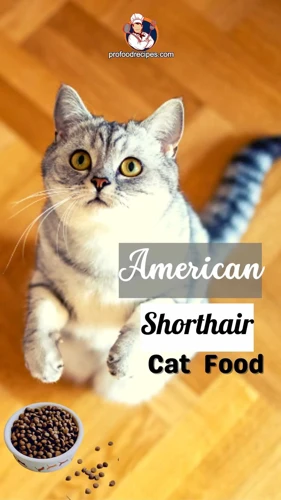
Choosing the right diet for your senior American Shorthair cat can be a perplexing task. With so many options available, it can be overwhelming to determine what your cat needs while still appealing to their taste buds. However, taking into account your cat’s health, activity level, and preferences, you can find a diet that meets all of their needs. In this section, we will explore some key factors to consider when choosing the ideal diet for your senior American Shorthair cat.
Consider Your Cat’s Health
When considering the diet for your senior American Shorthair cat, it’s essential to keep their overall health in mind. Here are several health factors to consider when selecting a diet:
- Weight: Obesity is a common problem in older cats, which can lead to various health issues like diabetes, arthritis, and heart diseases. If your senior American Shorthair cat is overweight, you should consider choosing a diet that has a lower calorie content but is still packed with essential nutrients and vitamins.
- Food Allergies: Some cats may develop food allergies over the course of their lives. If your senior American Shorthair cat shows signs of allergies, such as skin irritation, vomiting, or diarrhea, you should consider shifting to a new diet that eliminates the allergen, as identified by your veterinarian.
- Digestive Issues: Digestive problems like constipation and diarrhea are common in older cats. Choosing a diet that contains high-fiber ingredients can help alleviate these issues. Also, senior cats often have reduced gastric function, so diets with smaller, more frequent meals can help ensure digestion in such cases.
- Dental Health: Dental issues like gum disease and tooth decay are quite common in older cats. To ensure their dental health, choose a diet that is made up of smaller kibble, as well as soft and moist food that is easy to chew and swallow, to prevent any discomfort while eating.
It’s crucial to remember that the dietary needs of your senior American Shorthair cat can differ due to their current health condition, so consulting with your veterinarian can help make the best decision for your feline friend.
Consider Your Cat’s Activity Level
When choosing a diet for your senior American Shorthair cat, it’s important to consider their activity level. Just like humans, cats have different energy needs based on how much physical activity they get each day.
Activity Level | Diet Recommendation
— | —
Low | A diet with fewer calories and lower fat content would be appropriate for a senior cat who doesn’t move around as much.
Moderate | Senior cats with a medium level of activity can benefit from a balanced diet that includes a mix of protein, fat, and carbohydrates.
High | An energetic senior cat who is still very active may need a diet with more calories and a higher fat content to support their energy needs.
It’s important to note that senior cats may experience a decrease in activity level as they age, so it’s important to monitor their behavior and adjust their diet accordingly. Additionally, if your senior cat has any health issues that impact their mobility, such as arthritis, they may benefit from a low-calorie diet to prevent weight gain.
Consulting with your veterinarian can be helpful in determining your cat’s activity level and finding the best diet to support their unique needs. By considering your cat’s activity level along with their overall health and preferences, you can ensure that they stay happy and healthy in their golden years.
Consider Your Cat’s Preferences
While nutritional needs and health issues are important factors to consider when choosing a diet for your senior American Shorthair cat, don’t forget to take your cat’s personal preferences into account. After all, if your cat doesn’t like the food you give them, they may not eat enough or at all.
Here are some things to keep in mind when considering your cat’s preferences:
- Texture: Some cats prefer dry kibble, while others like wet food or a mixture of both. Consider trying different textures to see what your cat likes best.
- Flavor: Just like humans, cats have their own taste preferences. Try different flavors of food to see what your cat enjoys.
- Brand: Some cats are loyal to a certain brand of food. If your cat has been eating the same brand for years without any issues, it may be worth sticking with it.
- Temperature: Some cats prefer their food warmed up, while others like it at room temperature. Experiment with the temperature of your cat’s food to see what they prefer.
Of course, while you should take your cat’s preferences into account, it’s important to also make sure their diet meets their nutritional needs and doesn’t exacerbate any health issues. Talk to your veterinarian for guidance on how to balance your cat’s dietary preferences with their overall health.
Common Health Issues in Senior American Shorthair Cats and Diet Changes
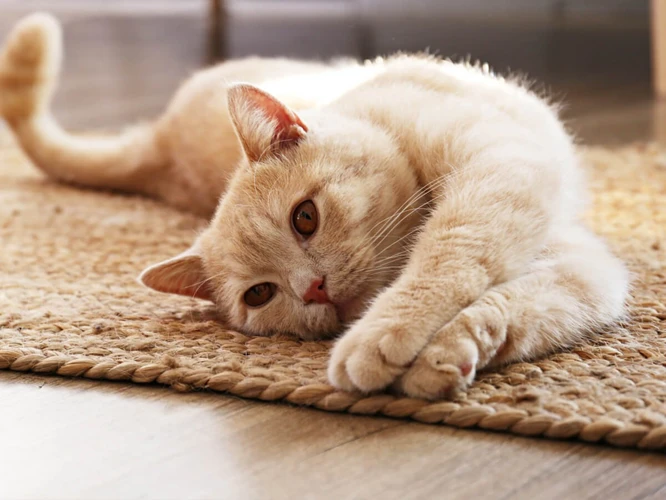
As our beloved American Shorthair cats age, their bodies may experience various health issues. Just like humans, changes in diet can often help alleviate or prevent these issues. Here are some common health concerns that senior American Shorthair cats may face, along with dietary changes that may assist in managing or avoiding them.
Weight Gain/Loss
As senior American Shorthair cats age, they become more prone to weight gain or loss, which can lead to various health problems if not addressed properly. In this section, we will discuss how weight changes affect cats and what diet changes can be made to help manage them.
Weight Gain: If your senior American Shorthair cat is gaining weight, it could be due to overfeeding or lack of exercise. Obesity can lead to numerous health issues such as diabetes, heart disease, and joint problems. To manage weight gain, it’s important to monitor your cat’s calorie intake and reduce it if necessary. Switching to a weight management dry or wet food can also help. These types of foods have fewer calories and are formulated to keep your cat feeling full for longer periods. Additionally, increasing your cat’s exercise routine can help them shed unwanted pounds.
Weight Loss: On the other hand, if your senior American Shorthair cat is losing weight, it could be due to various factors such as hyperthyroidism, dental problems, or other health issues. It’s crucial to bring your cat to the vet to rule out any underlying medical conditions. Once a medical cause has been ruled out, strategic dietary changes can be made. Switching to a high-calorie diet, such as senior cat food, can help your cat maintain a healthy weight. Feeding smaller, more frequent meals throughout the day can also encourage weight gain.
Below is a table summarizing diet changes for managing weight gain or loss in senior American Shorthair cats:
| Weight Change | Diet Changes |
|---|---|
| Weight Gain | -Reduce calorie intake -Switch to weight management food -Increase exercise |
| Weight Loss | -Rule out medical conditions with vet -Switch to high-calorie diet -Feed smaller, more frequent meals |
It’s important to note that any major changes to your cat’s diet should be made gradually to avoid digestive issues. By keeping an eye on your senior American Shorthair cat’s weight and making the necessary diet changes, you can help them maintain a healthy weight and avoid potential health problems.
Constipation
Constipation is a common issue in senior American Shorthair cats and can cause discomfort and even lead to more serious health problems. It is important to take steps to prevent constipation and make sure your cat’s diet is helping their digestive system stay healthy.
Causes of Constipation:
There are several causes of constipation in cats, including age, lack of exercise, dehydration, and inadequate fiber intake. Senior cats are more prone to constipation due to their slower metabolism and decreased physical activity. They also may not drink enough water or eat enough fiber on their own, so it is important to make changes to their diet to help them stay regular.
Dietary Changes:
Adding more fiber to your cat’s diet can help prevent constipation. This can be done by switching to a high-fiber cat food or adding fiber supplements to their normal food. Other options include canned pumpkin, which is high in fiber and can be fed in small amounts to help regulate bowel movements, and probiotics, which can help keep the digestive system healthy.
Water Intake:
In addition to fiber, it is important to make sure your cat is drinking enough water. This can be done by providing fresh water in a clean bowl at all times, or by providing wet food that contains a higher percentage of moisture. You can also add water to your cat’s dry food to make it more palatable and increase their water intake.
Exercise and Laxatives:
Increasing your cat’s physical activity can also help prevent constipation. Encourage playtime and exercise to help keep their muscles moving and their digestive system working properly. In some cases, your veterinarian may also recommend laxatives or stool softeners to help relieve constipation.
Dietary Changes:
When it comes to feeding a cat with constipation, it is important to choose a diet that is high in fiber and moisture. This means avoiding dry food and opting for wet or canned food instead. You can also try feeding a homemade diet that includes high-fiber ingredients like brown rice, bran, and canned pumpkin.
| Foods to Include | Foods to Avoid |
|---|---|
| Wet or canned cat food with high moisture content | Dry food with low moisture content |
| Green beans, pumpkin, or prunes (in small amounts) | Milk and other dairy products |
| Fiber supplements | Bones and fish bones |
| Probiotics | Fruit and fruit juices (in excess) |
By making these dietary changes and taking other preventative measures, you can help keep your senior American Shorthair cat healthy and happy, and prevent issues like constipation from developing. As always, consult with your veterinarian before making any dietary changes or giving your cat any new supplements or medications.
Kidney Disease
As senior American Shorthair cats age, they become more prone to developing kidney disease. This condition is often associated with a decline in kidney function, which can lead to a buildup of toxins in your cat’s body. A proper diet can help slow down the progression of kidney disease and improve your cat’s quality of life.
Low-Protein Diet
A low-protein diet is often recommended for cats with kidney disease. Protein is essential for building and maintaining muscle mass, but it can also increase the workload on the kidneys. A diet that is low in protein can help reduce the amount of waste products that your cat’s kidneys need to filter out. However, it is important to note that a low-protein diet should not be too restrictive, as this can lead to muscle wasting and other health problems.
Phosphorus-Restricted Diet
Phosphorus is a mineral that is found in many types of food, including meat and dairy products. Cats with kidney disease often have difficulty excreting phosphorus, which can lead to a further decline in kidney function. A diet that is restricted in phosphorus can help slow down the progression of kidney disease and reduce the risk of complications. Some cat food brands offer specially formulated low-phosphorus diets.
Increased Water Intake
One way to help support kidney function in your senior American Shorthair cat is to encourage them to drink more water. Cats with kidney disease are more prone to dehydration, so it is important to make sure that they are drinking enough water. You can try adding water to their dry food or offering them wet food, which has a higher moisture content. A water fountain can also encourage cats to drink more water.
Reduced Sodium
Reducing your cat’s sodium intake can also be beneficial for their kidney health. Sodium can increase blood pressure, which can be harmful to the kidneys. A diet that is low in sodium can help reduce the risk of complications and improve your cat’s overall health.
Here is a table summarizing the recommended diet changes for senior American Shorthair cats with kidney disease:
| Recommended Diet Changes: |
|---|
| Low-Protein Diet |
| Phosphorus-Restricted Diet |
| Increased Water Intake |
| Reduced Sodium |
A proper diet can help slow down the progression of kidney disease in senior American Shorthair cats. A low-protein and phosphorus-restricted diet, increased water intake, and reduced sodium can all contribute to improving your cat’s kidney health and overall quality of life. It is always important to consult with your veterinarian before making any significant dietary changes.
Dental Problems
As American Shorthair cats age, they are prone to dental problems such as periodontal disease, tooth decay, and gum inflammation. These dental issues could lead to tooth loss and pain during eating, causing a decrease in appetite. It’s important to take care of their oral hygiene to avoid such problems.
One way to help maintain good dental hygiene is by feeding your senior American Shorthair cat dry food specifically designed for dental health. This type of food is formulated to help scrape away tartar and plaque from your cat’s teeth. Look for brands that have the Veterinary Oral Health Council (VOHC) seal of approval to ensure that they are effective in promoting your cat’s dental health.
Aside from feeding them dental-specific food, regular brushing of your cat’s teeth is another effective way to maintain their oral hygiene. You can use pet toothpaste and toothbrush to clean their teeth. Make sure to start this habit gradually, starting with just a few teeth at a time, and rewarding them with treats afterward.
In some cases, dental problems may require a change in your cat’s diet. Soft or wet food can stick to your cat’s teeth more easily and contribute to the formation of plaque and tartar. In such cases, switching to dry food may be beneficial for their dental health. Dental treats that contain enzymes that break down bacteria on your cat’s teeth are also an option for maintaining their dental hygiene.
Table 1: Foods that Promote Good Dental Health in Cats
| Food Type | Description |
|---|---|
| Dental Dry Food | Formulated to scrape away tartar and plaque from cat’s teeth |
| Raw Bones | Help scrape away plaque and debris from teeth |
| Dental Treats | Contain enzymes that break down bacteria on teeth, promoting dental health |
In case your cat already has serious dental problems, like tooth decay or periodontitis, a change in their diet might not be enough. Your veterinarian may recommend a dental cleaning procedure that involves scaling and polishing of their teeth. It’s important to consult with your veterinarian to determine the best course of action to take to address your cat’s dental health and overall wellbeing.
Foods to Avoid
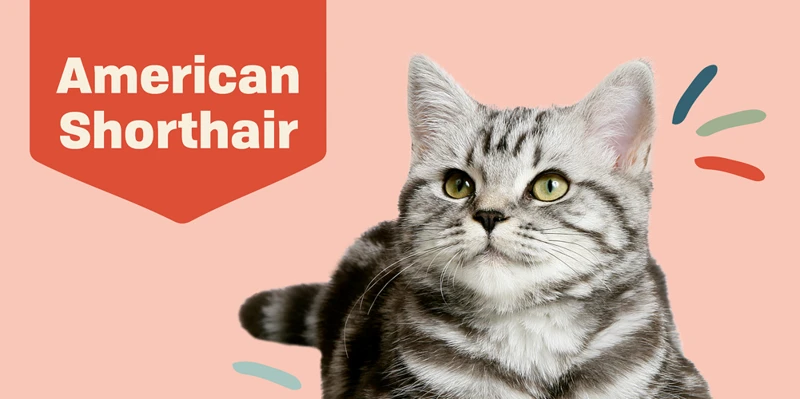
As much as we focus on the foods that are beneficial for our senior American Shorthair cats, it is just as important to pay attention to the ones we should avoid. Feeding our feline friends with the wrong kind of food can lead to various health problems. There are certain ingredients that might be safe for human consumption but can be harmful to cats. In this section, we’ll look at some of the foods that are best to steer clear of when it comes to feeding your senior American Shorthair cat so that they stay healthy and happy. Let’s dive in!
Garlic and Onions
It’s important to know that garlic and onions can be toxic to cats, especially in large amounts. This is because they contain compounds called thiosulphate and N-propyl disulphide, which can damage a cat’s red blood cells and lead to anemia. If ingested in small amounts, garlic and onions may not be harmful, but it’s better to avoid them altogether and err on the side of caution.
Here are some foods that may contain garlic or onions that you should avoid feeding your senior American Shorthair cat:
- Canned or homemade soups that contain onion or garlic powder
- Cooked or raw onions
- Cooked or raw garlic
- Garlic bread or other foods seasoned with garlic or onion powder
- Salad dressings or sauces that contain garlic or onion
The symptoms of garlic or onion poisoning in cats can include vomiting, diarrhea, weakness, difficulty breathing, and in severe cases, collapse or death. If you suspect that your senior American Shorthair cat has ingested garlic or onions, contact your veterinarian immediately.
It’s worth noting that some cat foods may contain small amounts of garlic or onion for flavoring. While these small amounts may not be harmful to most cats, it’s best to avoid them if possible, especially if your cat has a known sensitivity to these ingredients.
It’s best to play it safe and avoid feeding your senior American Shorthair cat any foods that contain garlic or onions. Stick to high-quality commercial cat foods that are specifically formulated for senior cats and meet all their nutritional needs.
Raw Fish and Meat
Raw fish and meat may seem like a logical source of protein for your senior American Shorthair cat, but it can actually be harmful to their health. Raw fish, such as sushi or sashimi, can contain a bacteria called listeria which can cause severe illness in cats. Raw meat can also contain harmful bacteria, such as E. coli and salmonella, which can cause illness or even death.
Raw fish and meat can lead to a thiamine deficiency in cats. Thiamine is a vitamin necessary for the function of many organs, including the brain. A deficiency in this vitamin can lead to serious health issues, such as seizures, loss of appetite, and even death.
Here are some foods that contain raw fish and meat that should be avoided:
- Sushi and sashimi
- Tuna and other raw fish products
- Raw beef or chicken
- Raw pork or lamb
It’s important to always cook and properly prepare any meat or fish before feeding it to your senior American Shorthair cat. This will ensure that harmful bacteria are eliminated and that your cat is receiving proper nutrition. If you’re concerned about your cat not receiving enough protein, speak with your veterinarian about alternative sources such as cooked lean meats or high-quality commercial cat food. Remember, providing a balanced and nutritious diet is crucial for your cat’s overall health and well-being.
Dairy Products
Dairy products are a common part of many human diets, but they are not suitable for senior American Shorthair cats. As cats age, their ability to digest lactose, a sugar found in milk, decreases. Feeding your senior American Shorthair cat dairy products can lead to stomach upset and diarrhea.
Why Should You Avoid Dairy Products?
Dairy products offer minimal nutritional benefits for senior American Shorthair cats. Most cats are lactose intolerant, meaning they do not produce enough lactase, an enzyme that breaks down lactose. When cats consume dairy products, undigested lactose moves into their large intestine, where it can cause an upset stomach, flatulence, and diarrhea.
Additionally, feeding your cat dairy products can lead to obesity and other health problems. Many dairy products contain high levels of fat, which can lead to weight gain and contribute to the development of diabetes.
Alternatives to Dairy Products
There are many alternatives to dairy products that senior American Shorthair cats can enjoy. For example, many cats enjoy small amounts of cooked meats, such as chicken or turkey. These meats are an excellent source of protein and can help your cat maintain a healthy weight.
You can also offer your cat small amounts of fruits and vegetables, such as carrots or blueberries. These foods are high in fiber, which can help keep your cat’s digestive system healthy.
Conclusion
Dairy products are not suitable for senior American Shorthair cats. They can cause digestive issues and contribute to weight gain and other health problems. Instead of feeding your cat dairy products, give them nutritious alternatives that will support their overall health and well-being.
Unbalanced Homemade Diets
While homemade diets can be a great option for some pets, it’s important to make sure that they are properly balanced. Feeding an unbalanced homemade diet to your senior American Shorthair cat can lead to serious health issues down the road. Here are some things to keep in mind when considering a homemade diet for your furry friend.
1. Lack of Nutritional Balance: One of the biggest risks of feeding an unbalanced homemade diet to your cat is the lack of nutritional balance. Cats require a specific balance of nutrients, including protein, fat, and a range of vitamins and minerals. Without this balance, your cat may develop a range of health issues.
2. Risk of Malnutrition: An unbalanced homemade diet can also lead to malnutrition, which can be especially dangerous for senior cats. Malnutrition can cause a range of symptoms, including weight loss, muscle wasting, and weakened immune function, which can make your cat more susceptible to other health issues.
3. Risk of Nutrient Toxicity: On the other hand, over-supplementing certain nutrients, such as vitamin A or calcium, can also be dangerous for your cat. Over-supplementing can lead to a range of health issues, including bone damage, joint pain, and organ damage.
4. Ingredient Variety: Another challenge with feeding homemade diets is ingredient variety. It can be difficult to ensure that your cat is getting a wide range of nutrients from a limited selection of ingredients. Commercial diets are formulated to provide all the necessary nutrients in proper balance.
5. Consult a Veterinarian: If you are interested in feeding a homemade diet to your senior American Shorthair cat, it’s important to consult with your veterinarian. They can help you create a diet that is properly balanced and tailored to your cat’s individual needs.
While homemade diets can be a great option for some pets, it’s important to ensure that they are properly balanced. An unbalanced diet can lead to serious health issues for your senior American Shorthair cat. Consider consulting with your veterinarian before making any major dietary changes.
Feeding Schedule and Portion Control
As your senior American shorthair cat ages, their nutritional requirements change, and so does their feeding schedule. It’s important to establish a feeding routine that takes their age, lifestyle, and overall health into account. Establishing a regular feeding schedule will help to maintain your cat’s digestive health and weight management.
Feeding Schedule: Senior cats tend to eat smaller, more frequent meals, rather than larger ones. It is recommended to feed your senior American shorthair cat two to three small meals per day. This not only promotes optimal digestion but also provides them with the necessary nutrients they require. If your cat is more active, you may need to increase their caloric intake slightly to accommodate their energy needs.
Portion Control: Portion control is critical when it comes to feeding your senior American shorthair cat. Overfeeding can lead to obesity, which can cause a host of health issues. Conversely, underfeeding can result in malnutrition, which can lead to a weakened immune system and other health problems. Consult with a veterinarian to determine the appropriate portion size for your cat based on their age, weight, and activity level.
One way to control portions is to use a measuring cup to measure out the exact amount of food recommended for your cat’s size and needs. It’s essential to avoid free-feeding your senior cat, ensuring that they only have access to their food during meal times.
Another crucial aspect of portion control is to avoid giving your senior American shorthair cat table scraps or human food. Human food can cause severe gastrointestinal upset and obesity in cats and can also lead to the development of unhealthy eating habits.
Establishing a regular feeding schedule and practicing portion control is essential to keep your senior American shorthair cat happy and healthy. Feeding your cat a high-quality, age-appropriate diet in the proper portions will help maintain a healthy weight, keep their digestive system functioning correctly, and reduce their risk of developing health issues.
Conclusion
In conclusion, it is important to remember that senior American Shorthair cats have specific nutritional needs that must be met in order to maintain their health and well-being. A diet that is high in protein and low in carbohydrates and fat will help them maintain a healthy weight and strong muscles. Additionally, incorporating a variety of vitamins and minerals into their diet will help keep their immune system strong.
When choosing a diet for your senior American Shorthair cat, it is important to consider their individual health needs, activity level, and preferences. Be sure to consult with your veterinarian before making any significant changes to your cat’s diet.
It is also important to avoid certain foods that can be harmful to cats, such as garlic and onions, raw fish and meat, dairy products, and unbalanced homemade diets. By feeding your cat a balanced diet that meets their specific needs, you can help prevent common health issues such as weight gain or loss, constipation, kidney disease, and dental problems.
Finally, it is important to establish a feeding schedule and portion control to ensure that your cat is not overeating or undernourished. By providing them with the appropriate amount of food and feeding them at consistent times, you can help them maintain a healthy weight and avoid common health issues associated with over or under feeding.
Overall, providing your senior American Shorthair cat with a healthy and balanced diet is essential to ensuring their health and happiness as they age. By following the guidelines outlined in this article, you can make informed decisions regarding their diet and provide them with the best care possible.
Frequently Asked Questions
What are the nutritional needs of a senior American Shorthair cat?
A senior American Shorthair cat needs a well-balanced diet that is high in protein, low in fat, and rich in vitamins and minerals.
What should be the primary source of protein in my cat’s diet?
The primary source of protein in your cat’s diet should be animal-based, such as chicken, fish, or beef.
Is a dry food diet suitable for senior American Shorthair cats?
Dry food can be suitable for senior American Shorthair cats as long as it is nutritionally balanced and meets their specific dietary needs.
What are the benefits of a wet food diet for senior American Shorthair cats?
A wet food diet can help keep senior American Shorthair cats hydrated and may also help with digestion and weight management.
Is semi-moist food a healthy option for senior American Shorthair cats?
Semi-moist food can be high in sugar and preservatives, making it a less healthy option for senior American Shorthair cats.
What is a raw food diet and is it suitable for senior American Shorthair cats?
A raw food diet consists of uncooked meat, bones, and vegetables. It can be suitable for senior American Shorthair cats, but it is important to ensure it is nutritionally balanced and safe.
What should I consider when choosing a diet for my senior American Shorthair cat?
You should consider your cat’s health, activity level, and preferences when choosing a diet for your senior American Shorthair cat.
Can changes in diet help with weight gain or loss in senior American Shorthair cats?
Yes, changes in diet can help with weight gain or loss in senior American Shorthair cats. A veterinarian can recommend a suitable diet plan based on your cat’s specific needs.
Is it safe to feed my senior American Shorthair cat garlic or onions?
No, feeding your senior American Shorthair cat garlic or onions can be harmful and may cause anemia.
How often should I feed my senior American Shorthair cat and how much?
You should feed your senior American Shorthair cat based on their specific dietary needs and activity level. A veterinarian can help determine a feeding schedule and portion control plan.

